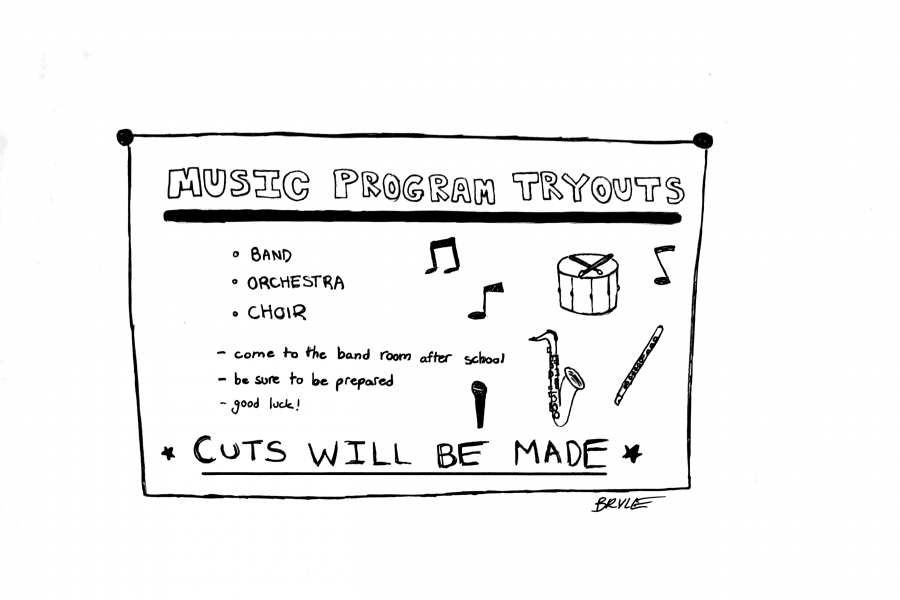The death of high school music programs is nigh. Sadly, funding for our high school music education is being slashed in favor of other, “more useful” programs like sports. Since 2008, 80 percent of U.S. schools have suffered budget cuts and often, music and arts programs have been the first to go, according to US News.
In the minds of budget partitioners, music is a drain on resources. However, these programs hold benefits for developing students. One study conducted at Concordia University showed that music lessons taken over a long period of time can produce positive changes in brain structure and motor skills.
Another study by Nina Krauss, a cognitive neuroscientist, found that people who receive instrumental training from their early years to the end of their high school careers tend to understand speech much quicker than those who did not. Some of these participants showed these results even if they didn’t pick up an instrument for many years after their lessons. These effects were also found to be common among world-class athletes and top-level managers. It’s unreasonable to cut funding for something that provides such numerous benefits.
It’s sad to see strong programs with numerous positive effects be thrown out the window in order to save money. Given both the dire state and bleak future of the situation, there’s only one solution to save our music programs: accept only the gifted into them.
After all, even ardent supporters of the arts like Lorenzo de Medici didn’t have millions to spend on peasants. Similarly, schools don’t have millions to waste away on students who clearly have no talent. A recent report showed that U.S. students have been scoring lower in the music and visual arts category on the Nation’s Report Card, a wide-ranging national assessment. It’s ridiculous that the government funds this type of failing program at the expense of its citizens.
Back in the Classical Era of music, major figures like Mozart and Beethoven had their talent recognized at a young age by aristocrats. These young geniuses became apprentices to well-known musicians and spent many years studying before they achieved their widespread recognition. Their abilities were allowed to blossom because they were given so many resources by the social elite. Today’s musicians can’t even hold a candle to them. We have bands like Nickelback.
But even if we accepted only the talented few into the musical ranks, there still wouldn’t be enough money to go around. Donations and bake sales won’t cut it. If we are to create great music programs, we need to reduce costs. We need to make our own music.
By composing our own music, we cut the costs of sheet music entirely. According to J.W. Pepper, the largest sheet music provider in the world, the average choral arrangement costs up to $2 per copy. For band arrangements, $45 a copy. If we just write our own music, funding wouldn’t be an issue! Only the most talented musicians would be able to write the music that they perform. It’s also obviously the easiest way to determine a potential student’s musical merit. Composing any form of music is often difficult, and can only be done by the most skilled at the high school level. An effective way to implement this is to ask people who are auditioning for one of the many music programs to compose a simple song, right there, on the spot. Since this can only be done by those with high merit, we would only accept them into the program. We get the best of the best and we eliminate the need to pay for music.
Some people are under the false assumption that music programs exist solely to provide an enriching experience, but this is idealistic for our current situation. If students are looking for an open and enriching program, they should go play sports, which are better funded. According to the National Association of Music Merchants, the average cost for a high schooler’s music education is $143. But according to the IRS, the non-profit sports industry is worth $5 billion. Since funds are so low for music education, once again, it’s pointless to waste it.
I confess that I am not among these gifted elite to provide the world the genius it needs, or to provide the taxpayers their money’s worth. But because of my love for music programs, I formed this plan. I desire not to prevent people from pursuing their passions, but instead wish to do the best with what little resources we have. It’s either this or improve funding.



